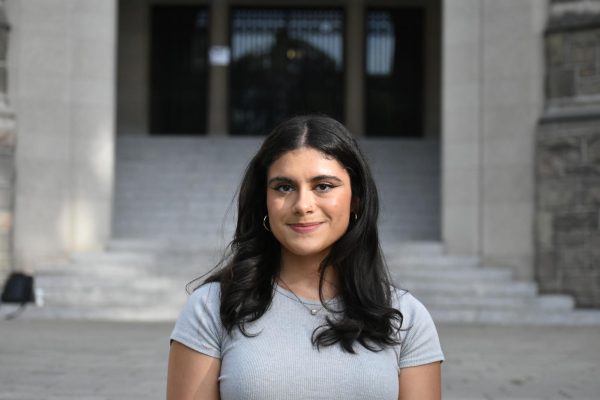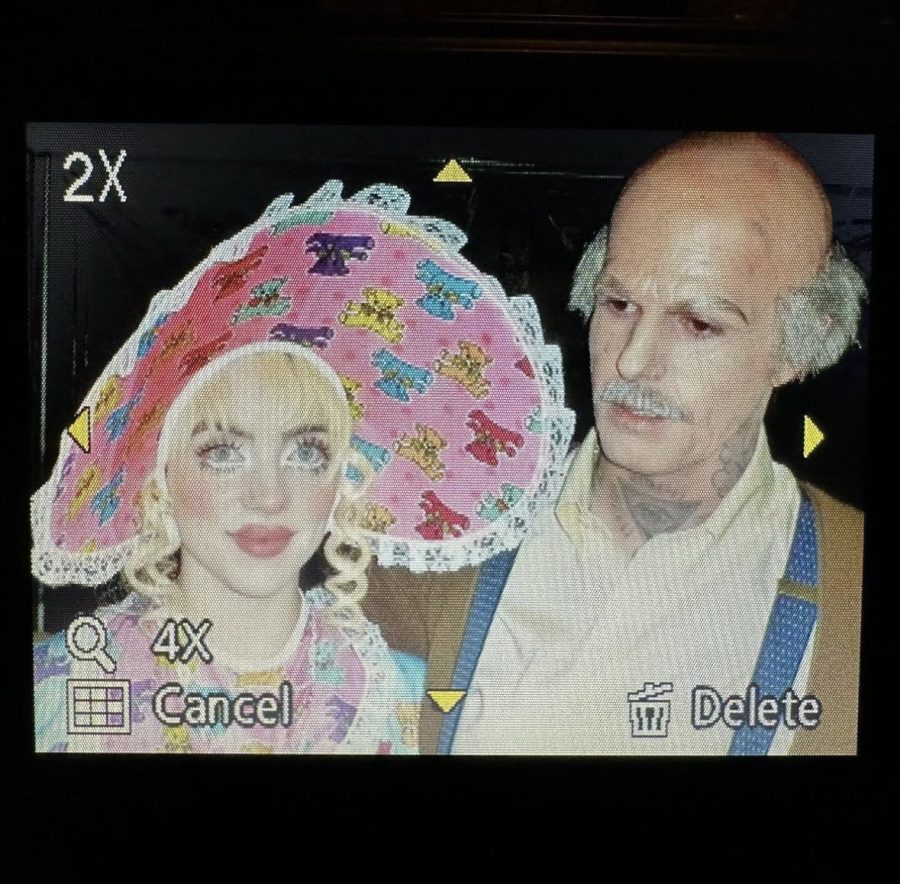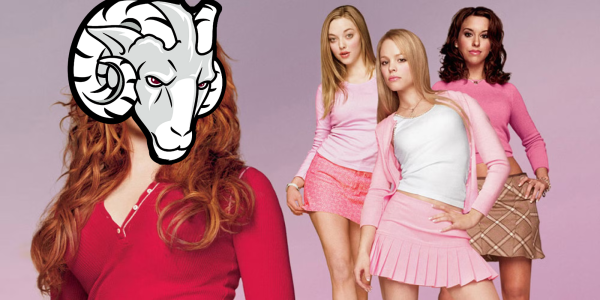Jesse Rutherford Should Know Better — But We Should Too
Speculations about a relationship between 20-year-old pop singer Billie Eilish and Jesse Rutherford, the 31-year-old lead vocalist of indie-rock band “The Neighbourhood,” started circulating on the internet in mid-October. Social media platforms erupted with conversations about Eilish and Rutherford’s age gap. The couple finally confirmed the dating rumors with a controversial Halloween couple’s costume. Rutherford dressed up as an elderly man and Eilish followed suit with a baby costume using dramatic, doll-like makeup, obviously making fun of people concerned with their age difference.
People condemned both Eilish and Rutherford for the costumes and their cynical response to the outcry. Yes, the costumes were definitely weird, and this criticism is absolutely valid, but we need to be careful not to place the blame on Eilish. Her view of this relationship is undoubtedly influenced by a power imbalance and also likely swayed by Rutherford’s manipulation.
Thanks to the #MeToo movement, our society has made huge strides in understanding and supporting victims of abuse. We’ve also begun to publicly recognize the damaging and painful effects of power dynamics in relationships. Women have become more empowered to call out both their abusers and the imbalance of power that often leads to this abuse. However, victim-blaming is still so deep-rooted in our culture that even feminists and self-proclaimed supporters may inadvertently fall victim to the use of harmful rhetoric.
To be perfectly clear, I’m not trying to imply that Eilish’s relationship with Rutherford is abusive. I understand that their relationship is legal and that Eilish is not a child. But that legality does not make their relationship ethical or, at the bare minimum, healthy. Eilish’s “adult” age doesn’t automatically mean she is capable of understanding the harms of her relationship.
Victims often don’t understand how damaging these relationships with large age gaps are until years later. Taylor Swift is well-known for speaking out about the emotional manipulation she endured from John Mayer when he was 32 and she was 19. Swift released the song “Dear John” on an album in 2010 soon after they broke up, and released another song called “Would’ve, Could’ve, Should’ve” on her most recent album, “Midnights,” that references the painful toll this relationship still has on her over a decade later.
Likewise, Demi Lovato recently released a song called “29” about their relationship with Wilmer Valderrama when he was 29 and they were 17. Lovato’s song echoes Swift’s heartbreaking demand for societal recognition of insidious relationship power imbalances that victims often only recognize in hindsight.
We should, without a doubt, be concerned for Eilish. We should be cautious when talking about her relationship so we do not place the blame on her for what is likely the effects of Rutherford’s clever convincing that those costumes are edgy. The bottom line is that he knows better; she doesn’t.
Let’s take a deeper look at the timeline of Eilish and Rutherford’s relationship as well as their own personal histories. Eilish and Rutherford met at a Halloween party in 2017 when Eilish was either 15 or newly 16 — her age isn’t exactly clear, but we know she was certainly a minor.
At the time, Rutherford was dating Devon Lee Carlson. Though they didn’t start dating until soon after they both graduated high school, they met when Rutherford was a senior and Carlson was a freshman. After dating for six years, the pair split in 2021.
While their relationship was not a crime, it is most definitely creepy and gross, and it could be considered grooming, making Rutherford’s song “Single” especially disconcerting. The song is more than likely about Carlson because it was released when they first started dating in 2015 and he references her father, Dave, by name in the song. Rutherford sings “[she’s] just a baby, but she’s growing up so fast / and I’m allergic to the waiting.” Yes, you read that right. Try not to vomit. He is quite literally singing about how he has to wait to be with a young girl, and though he doesn’t explicitly say why, the lyrics obviously imply that he’s waiting for her to turn 18.
Notably, Eilish was in an abusive relationship when she was 16 years old, referenced in her song “Your Power,” in which she describes her experience with emotional abuse from predatory and manipulative men in the music industry. People online have been using this song as a reason for why Eilish should “know better” by now.
We are quick to criticize women when they don’t act like the “perfect” victims who have already healed from abuse. Why should Eilish know better? Victims of emotional abuse are likely to seek out the same manipulative qualities in relationships that often lead to more abuse. Why should Eilish know better when we as a society have been telling girls for years that they’re more mature than boys their age?
The narrative that girls mature faster than boys is a cleverly-concealed inversion of the damaging adage “boys will be boys,” and lacks any biological basis. When we tell young girls that they are simply more mature, we are also telling them that they should accept all forms of mistreatment from men because that’s their inherent “nature,” even when our instincts tell us their behaviors are patently wrong, hurtful, diminishing, demeaning. So when older men prey on young girls with the always persuasive, age-old flattery “you’re just so mature for your age,” these girls have been primed for years to take the bait. But women in their early twenties are not that mature yet, and that’s okay. That’s normal.
While social media’s ability to amplify marginalized voices is valuable and necessary for meaningful change, this capability holds the potential to do much more harm than good for victims if we aren’t careful. We need to be more mindful than ever with precisely what we say and how we speak to victims of abusive and manipulative relationships.
The public’s response to Eilish’s relationship reflects a broader cultural tendency toward wrong-minded and poisonous victim-blaming that we still haven’t eradicated. Blame Rutherford. He’s the one who should know better.
Sophia Forlenza, FCRH ’24, is a digital technologies and emerging media major from Brookfield, Conn.

Sophia Forlenza is a senior from Brookfield, Conn. She is majoring in digital technologies and emerging media and minoring in television. She first joined...













































































































































































































